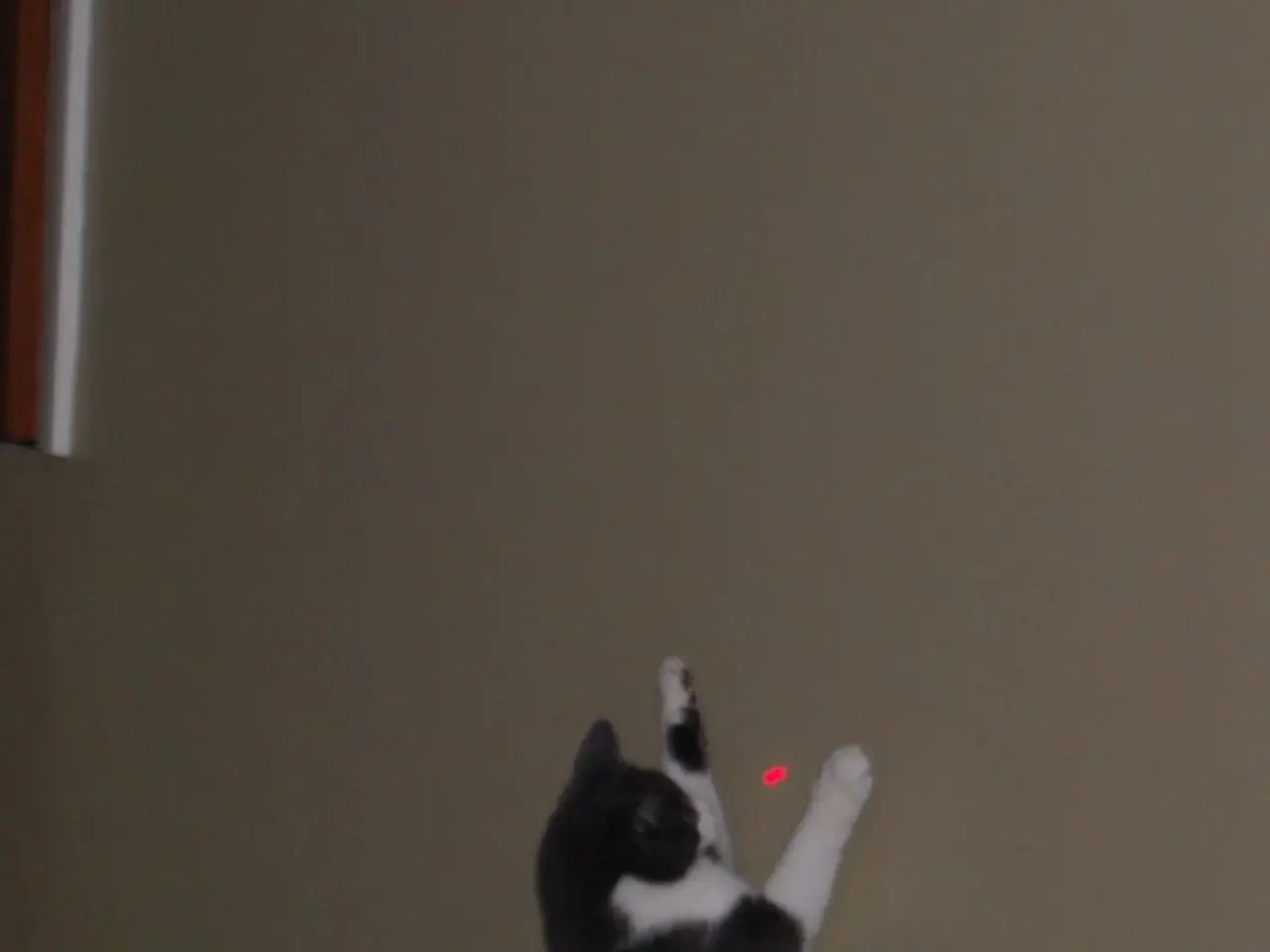America's Most Potent Laser Now Official: ZEUS, Capable of a 2-Petawatt Burst
Powerful ZEUS Laser Breaks New Ground in Scientific Research
The University of Michigan's ZEUS laser, currently the most potent laser beam in the United States, has been making waves in the scientific community. After about 15 months of user experiments, the laser is set to revolutionize various fields, from particle physics to medical imaging.
The ZEUS laser, housed at the Gérard Mourou Center for Ultrafast Optical Science, boasts a peak power of 2 petawatts, equivalent to 2 quadrillion watts. This power rivals that of the Greek god Zeus, who wields a lightning bolt as a symbol of his power.
The aim of the experiment is to produce electron beams with energies comparable to long particle accelerators. To achieve this, ZEUS will accelerate electrons using wakefield acceleration. This technology allows for the efficient acceleration of charged particles in intense electromagnetic fields.
ZEUS' upgraded capabilities have opened up new avenues for research. If successful, the electron beam energies will be between 5 and 10 times higher than any beams ZEUS has yet produced. This breakthrough will enable frontier research in compact particle acceleration, advanced medical therapies, radiobiology, and defense-directed energy applications.
Beyond its established roles in plasma and quantum physics, medical imaging, and materials research, the ZEUS laser’s primary scientific uses and potential applications include:
- Particle beam generation for advanced accelerator research: ZEUS can produce electron beams with energies five to ten times higher than previously possible, rivaling large traditional accelerators that span hundreds of meters. This enables compact, high-energy particle acceleration with applications in fundamental particle physics.
- Directed energy and defense technologies: The military explores ZEUS for directed energy weapons due to its unprecedented power, which allows simulations of extreme astrophysical conditions (like stellar cores and black holes) and the potential to develop advanced defense systems.
- Laser-driven ion and proton acceleration: Experiments inspired by ZEUS research optimize proton acceleration via relativistically induced transparency. These high-energy proton beams (>60–100 MeV) can have applications in secondary neutron generation for radiobiology experiments and radiation therapy research beyond conventional methods.
- Advanced imaging and cancer treatment research: The intense laser pulses can improve imaging methods for soft tissues and enhance technologies used to treat cancer and other diseases through precision targeting.
A titanium-infused sapphire crystal will increase ZEUS' power to three petawatts later this year. Franklin Dollar, a physicist at UC Irvine, will run the first 2-petawatt user experiment with ZEUS. The new and improved ZEUS will allow for the interrogation of some of the universe's most fundamental physics.
The National Science Foundation funds ZEUS, and the crystal took nearly five years to manufacture and is about 7 inches (0.18 m) across. The laser pulse of the upgraded ZEUS will be one foot (0.3 meters) across and several feet long, but will be focused down to 0.8 microns wide. The pulse duration of ZEUS' laser is 25 quintillionths of a second.
Scientists from around the world can apply to run experiments with ZEUS, and the potential applications are vast. From unlocking the secrets of the universe to advancing medical treatments and defense technologies, the ZEUS laser is poised to make a significant impact in the scientific community.
References:
- ZEUS Laser Breaks New Ground in Compact Particle Acceleration
- Laser-Driven Proton Acceleration for Radiobiology and Cancer Therapy
- ZEUS Laser Could Revolutionize Defense Technologies
- The ZEUS laser, upon reaching a power of three petawatts later this year, is expected to facilitate pioneering research in compact particle acceleration, following the National Science Foundation's funding and the successful manufacturing of a titanium-infused sapphire crystal.
- The enhanced capabilities of the ZEUS laser with a focus on laser-driven ion and proton acceleration may revolutionize radiobiology experiments and radiation therapy research, offering advanced treatment methods beyond conventional approaches.
- As the technology advances, scientists from around the globe anticipate harnessing the potential of the ZEUS laser in exploring frontier research areas, like physics, technology, and the future, including defense-directed energy applications, directed energy weapons, and unlocking the universe's most profound mysteries.




